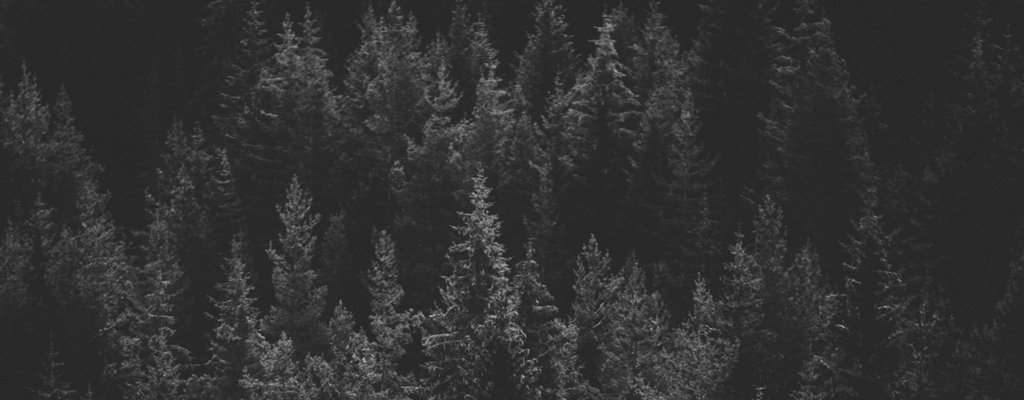Our trailer in the woods was held up by trailing ivy that fed on the rust. It had a flat roof and slatted panes that trapped droplets of water between them when it got warm. Orange and brown chintz curtains swayed at the windows. The door was always open in the spring so that the smell of the lake washed through, cleaning the air as good as spit and polish. Really it was only big enough for two grown-ups, but the five of us lived there, happy.
In the spring we smelled of dirt. We lapped water straight from the lake and sprinkled the undergrowth with our piss. Our feet got stained by earth. I could trace the whorls of my toe prints by the mud ground into the crevices.
The best days were when Mum let us eat coco pops for tea as a treat. Breakfast for dinner, then back outside to catch the last rays before bed.
The floor of the trailer was lined with trash. Great piles of clean trash – not rotting food or chewy french fries, no stale milk. We learnt young to pick our way through it, creating safe paths through the mess where we wouldn’t get jabbed with lego or slip on a magazine cover. Mum loved magazines, especially the ones about hard lives. I Was Born With Three Holes in My Heart or Murdered by the Milkman. I didn’t like those ones so I turned the towers upside-down. I asked her once why we let mess pile up on the trailer floor. She said it was so that if people looked through the window they’d think we had nothing worth taking.
Mum left coat hangers hook-up across the threshold and spread pushpins on top of the carpet.
Once a month we went to the shops in town to buy food and add money to the leccy metre. Dad never came on the shopping trips.
On shop days Mum made us squeeze into our shoes, even though our feet weren’t used to them and they made my toes throb at the ends. She spat on her palm and smoothed my brother’s cowlick. “Speak polite, no swearin’,” she used to say before we slid through the automatic doors. “If you need to go we’ll use the toilets, no bushy sprinklers.” Didn’t matter how polite we were, people stared all the same. I felt them trying to work us out. Mum put the two smaller kids in the seats of the shopping trolley and I climbed in with the cans of marrowfat peas and sack of potatoes. The air conditioning felt like lake water on my sun-stung shoulders. One time the woman on the till asked Mum why we weren’t in school. I smiled to myself ‘cos I knew about school from the telly, and I knew that other kids had to go, even if they hated it. We found a different shop after that and Mum said it was ‘cos the woman on the till was arsey.
There was no bedtime. When we were tired we curled together in the big double bed. Mum and Dad stayed up watching telly in the front room of the trailer. The light flashed, beating like music, and the smoke from Dad’s ciggy made the air hazy and smelt of liquorice. Once, in a dream, I saw Dad’s face: black and white and bruises.
We strung fishing line between the trees. Hung bottle caps and shells from the branches so that they tinkled in the wind. Made the rocks sparkle with slithers of glass. Mum chased us with a plastic bottle filled from the tap and made us squeal. We practiced running down to the lake and jumping into the old rowboat and pulling the tarp over the top of us. It was my job to make sure the smaller kids kept quiet. “That’s a good hiding place,” Mum said. “If you ever need to get away, that’s where you should go.”
One night the jangle of our shell wind chimes came in stronger than the breeze. I was propped up on a pillow reading. Dog-tired from a day in the woods. Mum’s face went long and flat like a mask. She pushed on Dad’s shoulder and told him to Go! So he belted out of the trailer. There was a lot of shouting, then, in the woods. One of the little ones did a wee in the bed, the smell prickled my nose. It seeped into my pyjama leg.
The next day I went to live with the Collinses: a middle-aged man and woman with no children. They smelled like soap before the plastic’s taken off. Mrs Collins showed me a bedroom that looked out on a garden filled with cyclops sunflowers. She gave me a dress to wear and hard black sandals that made my feet sweat. “You’ll be pleased,” she said, “to have your own space. You’re safe, now.”
In the closet I found an armful of wire coat hangers. It took me all night to bend the hooks upwards and by the end my fingers were lined with beads of blood. Before I went to sleep I lined the hooks up along the threshold.
Sarah Daniels is a recovering academic writing in rural Lincolnshire. She is a graduate of the Curtis Brown Creative Online Novel Writing Course and she was a finalist in the 2018 NYC Midnight Short Story Writing Competition. Her work has appeared in Gravel, and is forthcoming in Fictive Dream, Ghostlight and Five on the Fifth.

